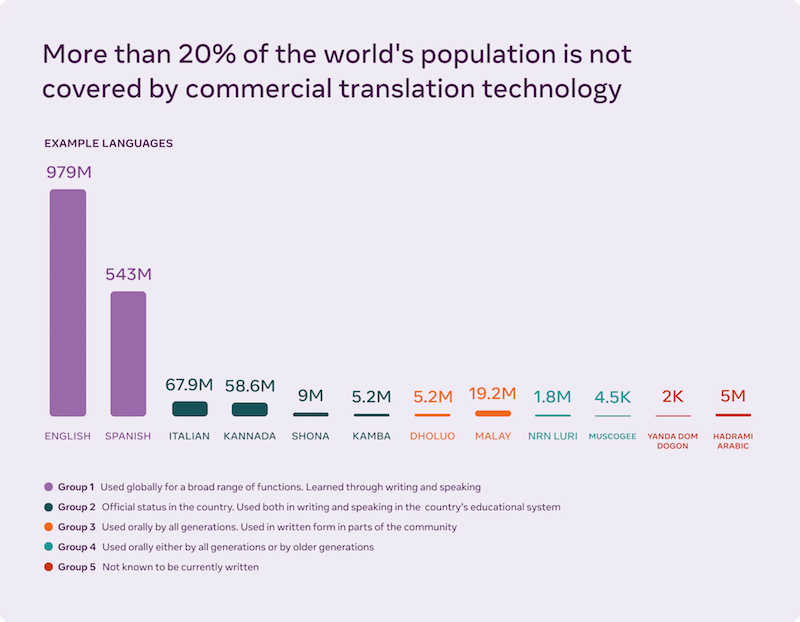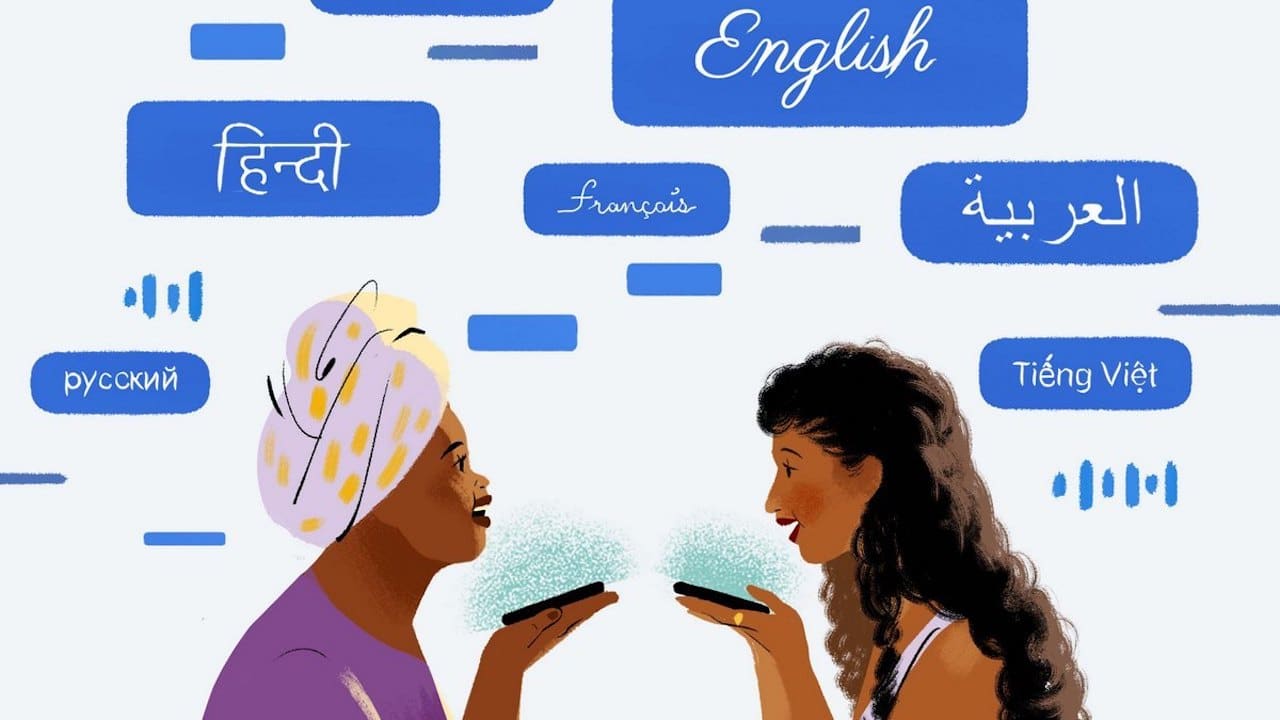Yet another ambitious new project for Meta, the parent company of all the best known platforms in the world. As already demonstrated for some time, the company is focusing on exploring the potential of Artificial Intelligence, also as a form of support for the metaverse project. This time around, however, Zuckerberg amazes with the development of a translation software that can be used by “everyone in the world”. A universal voice translator, to be exact. So let’s find out what it is.
Meta: the universal voice translator is the company’s new ambitious project
“The ability to communicate with anyone in any language: it’s a superpower that people have always dreamed of and AI will deliver it to us throughout our lives,” he said. Mark Zuckerberg about the Meta translator’s project. In this regard, in fact, the company claims that at least 20% of the population global speaks languages that are not supported by current translation systems. This would seem to depend above all on the lack of written texts useful for “training” Artificial Intelligence systems, or more simply on the fact that these languages do not have a standardized writing system.
 Credits: Meta
Credits: Meta
Meta’s goal, therefore, is to implement new machine learning techniques in two specific areas. The first, “No Language Left Behind“, Will focus on creating AI models that can learn to translate the language using fewer training examples. The second one, “Universal Speech Translator“, Will aim to build systems that translate speech in real time, without the need for a written component to act as an intermediary. Two projects officially announced by Meta, without a specification regarding development times – which we imagine will not be so short -. What the company has clearly announced, however, is its willingness to have a universal translator.
“The elimination of language barriers would be profound, allowing billions of people to access information online in their native or preferred language,” the Meta researchers write. “Advances in [traduzione automatica] they will not only help those people who do not speak one of the languages that dominate the Internet today; they will also fundamentally change the way people around the world connect and share ideas ”. Beyond that, it is clear that Zuckerberg has a well-defined commercial goal in mind. Thanks to Meta’s translator, all the company’s products will become essential for everyday communication between people. And that would mean huge gains for the company.
AI and translation, a functional combination?
Over the past few years, advances in machine learning have greatly improved the speed and accuracy of machine translation. From Google to Apple, many industry giants offer users free translation tools supported by Artificial Intelligence. Yet these same tools are often criticized for small malfunction details. The lack of nuances in the tone of the speakers, any gender-related prejudices or mistakes that only a computer can make. Mistakes that absolutely must be taken into consideration when it comes to machine translation of huge platforms like Facebook and Instagram.
In 2017, for example, a Palestinian was arrested by Israeli police after Facebook’s machine translation software mistranslated a post he shared. The man wrote “good morning”In Arabic, but the platform translated it as“ hurt them ”in English and“ attack them ”in Hebrew. A case that demonstrates how Facebook’s translation system has problems – and not a few! – even with the most translated languages in the modern world. In this sense, the idea of Meta’s universal translator is almost utopian. Perhaps, in fact, before committing to such an ambitious project, the company should solve the problems of AI with the English language?















Leave a Reply
View Comments